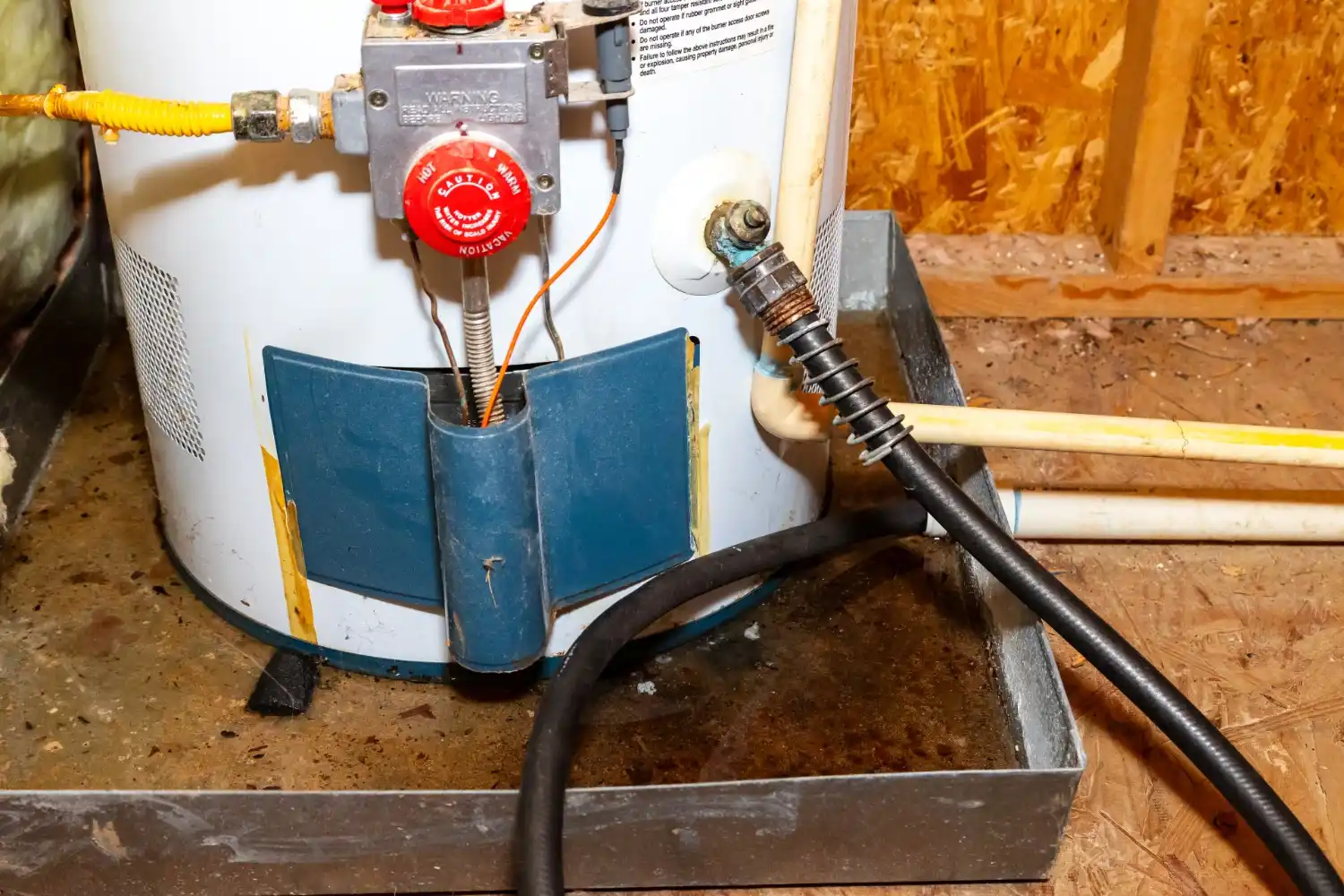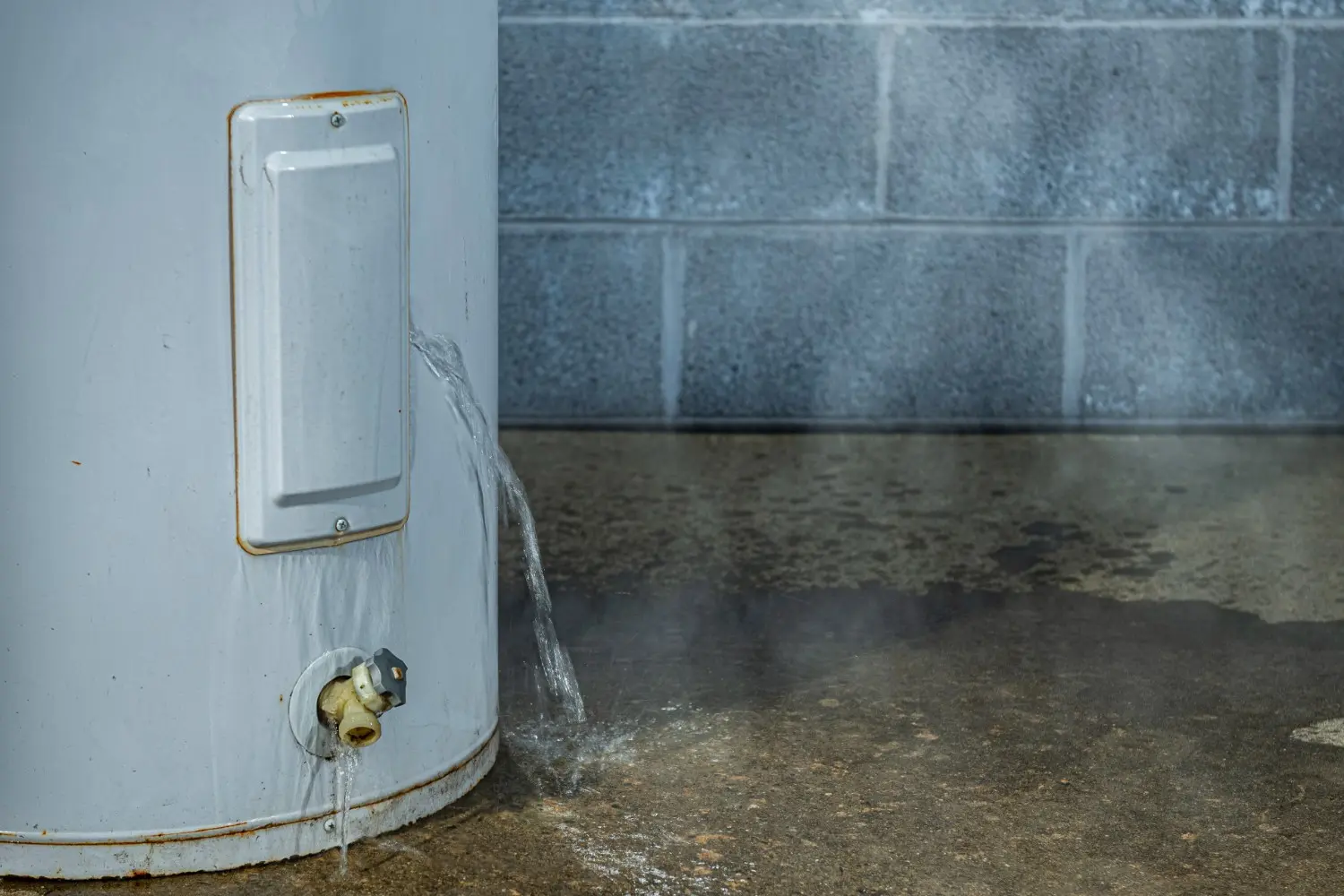Urgent Water Heater Leak Repair in San Antonio, TX
Discovering a water heater leak can be a stressful and potentially damaging situation for any homeowner in San Antonio. More than just a minor inconvenience, a leaking water heater signals a problem that requires immediate attention from qualified professionals. Ignoring a leak, even a small one, can lead to significant property damage, wasted water, and potential safety hazards. Understanding the urgency and knowing who to call in San Antonio is the first step toward protecting your home and restoring peace of mind.
Why Water Heater Leaks Are a Serious Concern
A leaking water heater isn't just about cleaning up a puddle. The water can cause substantial damage over time, saturating drywall, flooring, insulation, and even the structural components of your home. This moisture creates a breeding ground for mold and mildew, which can compromise indoor air quality and pose health risks. Furthermore, persistent leaks can lead to structural wood rot, weakening floors and walls.
For gas water heaters, a leak could potentially compromise the integrity of gas lines or venting, leading to carbon monoxide risks. Electric water heaters present the danger of electrical shorts or fires if water comes into contact with electrical components. Sediment buildup, a common issue particularly with San Antonio's hard water, can also exacerbate leaks by corroding the tank or causing relief valves to fail. Addressing the leak promptly minimizes these risks and prevents more costly repairs down the line.

Common Causes Behind a Leaking Water Heater
Water heaters can leak from various points, each indicating a different underlying issue. Identifying the potential source helps understand the necessary repair or replacement.
- Tank Corrosion: This is the most serious type of leak. Over time, the protective anode rod inside the tank can corrode, leaving the steel tank vulnerable to rust. Once the tank itself rusts through, the leak is irreparable, and the unit will need to be replaced. San Antonio's hard water can accelerate this process by contributing to sediment buildup, which creates hot spots and further corrodes the tank lining.
- Temperature and Pressure Relief (TPR) Valve: This valve is a crucial safety device designed to release water if the tank's temperature or pressure becomes too high. If the TPR valve is leaking, it could indicate excessive pressure, high temperature, or a faulty valve itself. While replacing the valve is a possible repair, high pressure issues require investigation.
- Drain Valve: Located near the bottom of the tank, the drain valve is used for flushing sediment. It can leak if it becomes loose, damaged, or clogged with sediment, preventing it from closing properly.
- Inlet and Outlet Connections: The pipes connecting to the top of the water heater (cold water inlet and hot water outlet) have fittings that can loosen over time due to temperature fluctuations or vibration. These connections can also corrode. Leaks at these points are often repairable by tightening or replacing the fittings and potentially sections of pipe.
- Heating Element Gasket (Electric Heaters): On electric water heaters, leaks can occur around the gaskets sealing the heating elements. These gaskets can wear out or become damaged.
Understanding where the leak originates is key to determining the most effective and lasting solution. A qualified plumber has the expertise to accurately diagnose the source.
Recognizing the Signs of a Leaking Water Heater
Sometimes, a water heater leak isn't immediately obvious, especially if the unit is in a garage, basement, or closet. Beyond visible puddles, be aware of these signs:
- Visible Water: Any amount of standing water or moisture around the base of the water heater is the most direct indicator.
- Rusty or Discolored Water: Rust-colored water coming from your hot water taps can signal internal tank corrosion, often preceding a tank leak.
- Unusual Noises: Popping or banging sounds can indicate significant sediment buildup, which stresses the tank and can lead to leaks or premature failure.
- Sudden Drop in Hot Water: While not always leak-related, a sudden decrease in hot water availability or pressure could be a symptom of a compromised tank or system issue.
- Musty Odors: Persistent damp or musty smells near the water heater could indicate hidden water damage or mold growth resulting from a slow leak.
If you notice any of these signs, it's crucial to act quickly to prevent further damage.
What to Do Immediately When You Find a Leak
Your first steps upon discovering a water heater leak are critical for safety and minimizing damage.
- Shut Off the Water Supply: Locate the cold water supply valve for the water heater. It's typically a handle on the pipe leading into the top or side of the heater. Turn it clockwise to shut off the water flow to the tank.
- Shut Off the Power/Gas:
- Electric Water Heater: Locate the breaker box and find the breaker labeled for the water heater. Flip the breaker to the "off" position.
- Gas Water Heater: Locate the gas shut-off valve on the gas line leading to the water heater's control valve. Turn the handle until it is perpendicular to the pipe. Do not attempt to reignite the pilot light if it goes out after this step; leave it off
- Begin Cleanup: Carefully begin to mop or sponge up any standing water to prevent it from spreading.
- Contact a Professional: With the water and power/gas safely off, call a professional plumbing service experienced in Water Heater Repair & Install in San Antonio.
Do not attempt complex repairs yourself, especially involving gas or electrical connections. Safety is the top priority.
The Professional Water Heater Leak Detection and Repair Process
When you contact a qualified plumber in San Antonio for a water heater leak, you can expect a systematic approach to diagnose and resolve the issue:
- Rapid Response: Recognizing the urgency, experienced plumbers prioritize leak calls. They arrive quickly to assess the situation.
- Safety First: The technician will confirm that the water and power/gas supplies are safely shut off.
- Thorough Inspection: The plumber will carefully inspect the entire water heater unit and surrounding area to pinpoint the exact source of the leak. This involves examining all potential leak points: the tank body, TPR valve, drain valve, pipe connections, and heating elements (for electric units). They will also assess the extent of any water damage.
- Diagnosis and Recommendation: Based on the inspection, the technician will determine the cause of the leak. They will explain the findings clearly and provide expert recommendations.
- Repair vs. Replace Discussion: A significant part of the recommendation involves discussing whether repairing the leak is a viable and cost-effective solution or if replacing the unit is necessary. Factors considered include the age of the water heater, the severity and location of the leak (e.g., tank leaks are irreparable), the cost of the repair versus replacement, and the overall condition of the unit.
- Professional Service: If repair is feasible, the technician will perform the necessary work, which could involve replacing a valve, tightening connections, or addressing other component issues. If replacement is needed, they can guide you through options for a new Water Heater or Tankless Water Heater suitable for your home.
- Testing and Cleanup: After the repair or installation, the system is thoroughly tested to ensure the leak is stopped and the unit functions correctly. The work area is cleaned up, leaving your home in good condition.
This structured process ensures the problem is correctly identified and permanently resolved, restoring your hot water supply safely and efficiently.
Repairing vs. Replacing Your Leaking Water Heater
Deciding whether to repair or replace a leaking water heater depends heavily on the nature and location of the leak, as well as the age of the unit.
- Repair is Often Possible: If the leak is originating from a component like the drain valve, TPR valve, or pipe connections, these parts can often be replaced individually, extending the life of the unit. This is typically the more cost-effective option for newer water heaters (generally less than 8-10 years old) with otherwise healthy tanks.
- Replacement is Necessary: A leak directly from the tank itself, usually due to corrosion, is irreparable. Once the steel tank liner is compromised, the entire unit must be replaced. Furthermore, if your water heater is nearing the end of its expected lifespan (typically 10-12 years for tank units) or requires frequent, costly repairs, replacement is often the more economical long-term solution. A new, more energy-efficient unit can also save on utility bills.
An experienced San Antonio plumber can provide an honest assessment and help you weigh the pros and cons of repair versus replacement based on your specific situation.
Why Choose Local Expertise for Leak Repair in San Antonio
Dealing with a water heater leak in San Antonio requires a service that understands local conditions and can respond quickly. San Antonio's water hardness, for example, significantly impacts water heater longevity and can contribute to issues like sediment buildup that lead to leaks.
Choosing a local plumbing service ensures faster response times when you have an urgent leak. Technicians familiar with the area can navigate quickly to your home. They also have experience dealing with the types of water heater problems common in the region, including those related to hard water. Reliability, professionalism, and a commitment to customer satisfaction are key when entrusting someone with a plumbing emergency in your home. Prompt, expert Leak Detection + Repair can prevent extensive damage and get your home back to normal.
Frequently Asked Questions About Water Heater Leaks
Who should I call if my water heater is leaking?
You should immediately call a qualified, licensed plumber experienced in water heater repair in San Antonio, TX. They can safely diagnose the problem and recommend the best course of action.
How much does it cost to fix a leaking water heater in San Antonio?
The cost varies significantly depending on the cause and location of the leak, whether repair is possible, and if the unit needs replacement. Simple fixes like replacing a valve or tightening connections are less expensive than replacing the entire unit due to a corroded tank. An accurate estimate requires a professional inspection.
Where could my hot water heater be leaking from?
Leaks can originate from the tank itself (due to corrosion), the temperature and pressure relief (TPR) valve, the drain valve, or the connections where pipes attach to the unit. Each source indicates a different type of problem.
How long do water heaters typically last?
Conventional tank water heaters typically last 10-12 years, while tankless water heaters can last 20 years or more with proper maintenance. The age of your unit is a major factor in deciding between repair and replacement when a leak occurs.
How do I know if I need to repair or replace my water heater?
If the leak is from the tank, replacement is necessary. For leaks from components like valves or connections, repair is often possible for younger units. Factors like the unit's age, repair cost versus replacement cost, and overall condition help determine the best long-term solution. Your plumber will provide a recommendation based on these factors.
Financing options
flexible financing solutions

We offer convenient financing options through Wells Fargo, making it easier to invest in plumbing or HVAC upgrades with flexible payments that fit your budget. Your comfort, safety, and satisfaction are always our top priorities—every service, every time.
Apply for Financing
We offer flexible financing options through GreenSky to help you move forward with essential plumbing or HVAC upgrades without delay. With quick approvals and affordable monthly payments, you can get the service you need while staying within budget.
Apply for Financing
We offer financing through Synchrony to make it easier to get the plumbing or HVAC service you need without delay. With simple application steps and convenient monthly payments, you can manage costs while enjoying reliable home comfort.
Apply for Financing
where we serve

